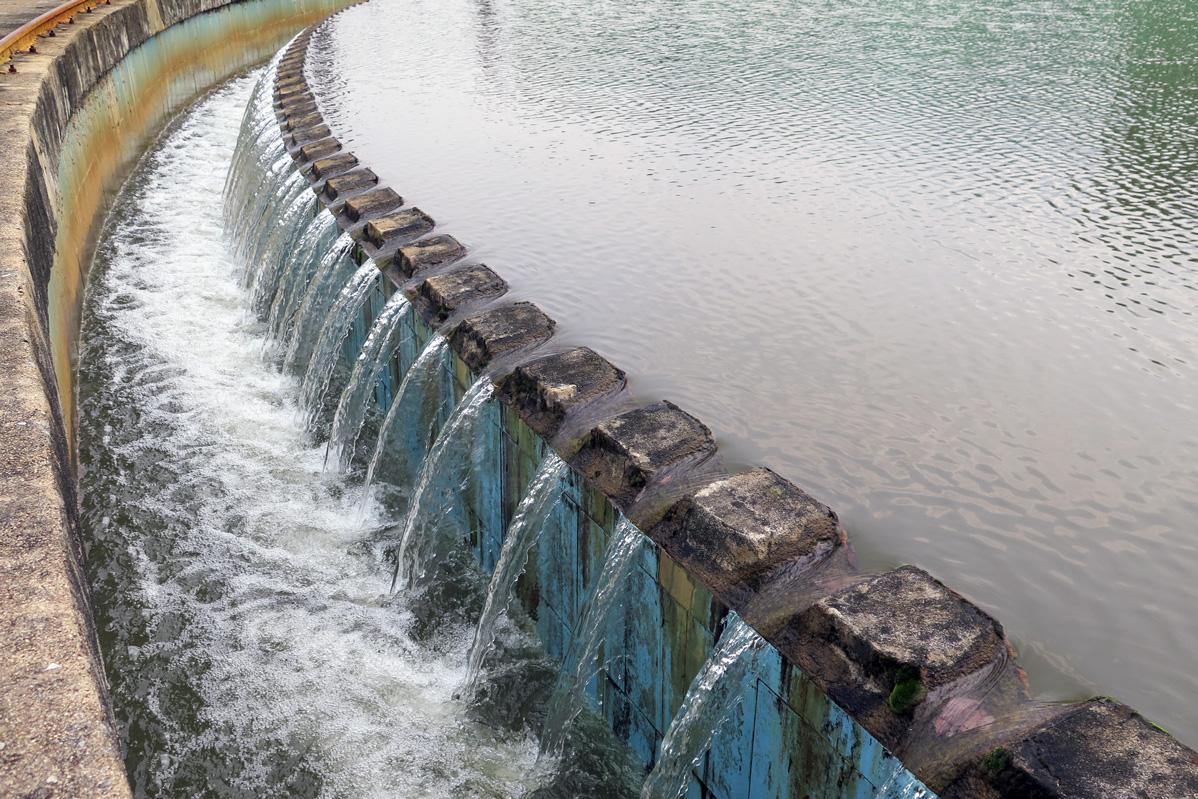With the so-called Water Innovation Hubs in the Indian cities of Coimbatore and Solarpur, the research partners of the AQUA-Hub project are currently preparing a platform to present blueprints for water infrastructure solutions that are especially suitable for fast-growing cities. Thus, the research project AQUA-Hub is a point of contact for Indo-German cooperation and the result of a previous joint research project of Fraunhofer IGB and ISOE. In that previous project “Smart Water Future India”, infrastructure solutions – exemplary for the metropolis of Coimbatore – were developed together with Indian stakeholders.
Background: In the megacity of Coimbatore in the south of the country, local waters are heavily polluted by urban wastewater. At the same time, however, the lakes in the urban area represent an important natural rainwater reservoir for the booming city and have the potential to make an important contribution to the quality of life of the population as a local recreation area. Coimbatore is representative of other cities in India. For their specific conditions, the research team had studied the challenges in more detail and identified needs for environmental technologies and smart water management strategies in order to attain sustainable water supply and disposal.
“In order to combine supply and demand for the solutions developed, we are now in the follow-up project AQUA-Hub establishing a kind of marketplace together with Fraunhofer IGB,” says ISOE water researcher Stefan Liehr. “It is our goal to demonstrate sustainable water technology solutions to Indian water stakeholders at this marketplace for subsequent application, thereby improving the quality of life for residents and the condition of water bodies and their environments.”
Sustainable water infrastructure and social innovation
Several factors are relevant for the success of solution approaches in the Indian market, he says. According to the ISOE water expert, the challenges lie particularly in combining technical and social innovations. “If new methods of water supply and disposal as well as water quality monitoring are to be used on a long-term basis, municipal water utilities need not only technological components, but holistic solutions that also include social innovations,” says Stefan Liehr. According to Liehr, social innovations include, for example, changed practices for operating technologies, changed accountability structures, and adapted forms of sharing information and acquire expertise.
For technology transfer to succeed, the approaches to solutions must be compatible and correspond to the needs and knowledge of the political-institutional decision-makers. International cooperation offers and local partnerships on the ground are also central for a successful implementation of water infrastructure solutions, he says. “This is what the Water Innovation Hubs are intended to contribute to in the long term,” Liehr says. The platform could offer companies and research institutes from Germany the opportunity to make their innovative technologies known on a local level, test them in pilot plants, develop them further under the specific conditions in India, and then ultimately bring them to application with the participation of customers. As the first demonstration project of the Water Innovation Hub in Coimbatore, the scientists are preparing the use of a smart system for the online monitoring of water quality.
The research project AQUA-Hub is funded as part of the Environmental Technologies Export Initiative (EXI) of the German Federal Ministry for the Environment, Nature Conservation and Nuclear Safety (BMU).
For more information, please go to www.isoe.de/en/nc/research/projects/project/aqua-hub
Scientific contact:
Dr. Stefan Liehr
Tel. +49 (0)69 707 6919-36
liehr(at)isoe.de
Press contact:
Melanie Neugart
Tel. +49 (0)69 707 6919-51
neugart(at)isoe.de
